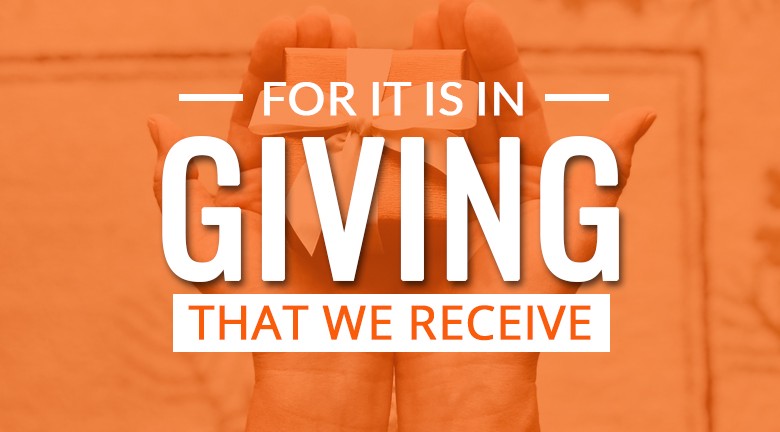Some months ago, I was at the Sanyu Babies Home orphanage in Kampala with whom I have a long-standing relationship. They were celebrating 90 years of existence and I went there in two capacities. Firstly, as an old standing member of the Home and secondly, to deliver a message from my Rotary Club, the Rotary Club of Kampala.
Step back a little. Sanyu Babies Home has a special relation to me. Its establishment is closely linked to my life through my father who was orphaned at birth, because of which his father handed him to the missionaries at Mengo hospital. They would go on to raise him as their own child.
When he was about 17, the missionary nurses realized the need for a formal home for the needy and orphaned children in the community. For his entire life, our father regarded Sanyu Babies Home as his home and was its patron during his last years. That is why my family feels a special attachment.
I went there that day to participate in their 90th year celebrations which included baptizing about 20 children. It is not the baptism that I want to talk about. What struck me that day was the loving care given to the children. Looking at those children, I could not help but mentally close my eyes and reflect on where I came from. I saw my father among those children.
My father was the only baby doted upon by the nursing missionaries, receiving all the love and care they could give. The situation at the orphanage today is different. More children – about 50 in total, ranging in age from newly born to 4-years-old – share the love of a dozen or so loving ladies.
One thing that struck me most was that during the entire function, none of the children cried. We are talking about fifty children in total, as I have said, between four years and a few days old. For over two hours, none of them cried and this is a telling indicator of the loving care they receive. That is the point I want to talk about. Care for needy children.
What kind of loving heart can someone have to give so much love to a child that is not theirs and who is not going to say, “Thank you”. The carers have no blood relationship to the children, most of whom are found abandoned on the streets and garbage dump sites – or at various doorsteps – and brought to the Home by the police to save their lives.
The function was attended by a police lady who oversees Family Affairs at the neighbourhood police station. She gave unfathomable testimony of the kind of children that are brought to her attention; children whom she had to pick up from garbage dump sites. She did not have enough words to describe the care provided to them, especially by the resident nurse and the Sanyu Babies Home director.
She expressed that no matter the time of day or night, when she calls, management at the Home is always ready to receive the children, some of whom are barely breathing. In these moments, there is
no guarantee that they will survive. But thanks to the grace of God for putting them in good hands, they eventually pull through. And what lovely children they are to behold! You look at them and say to yourself: “Good God! I wish God gave me a child as beautiful as this. I would thank Him”.
Yet here is that child, thrown into a garbage dump site or pit latrine, somehow fished out by good Samaritans, and brought to this Home for care. Who knows? Some of these children may turn up to be leaders in the country thanks to the loving care they receive from Sanyu Babies Home.
My father was not thrown into a garbage dump site. He was carried in the loving hands of his father and entrusted to the missionary nurses at the only hospital in town at that time. He had a good start. They nursed him through an attack of smallpox and other serious diseases.
He survived, received a good education and by becoming a priest, decided to give back to the society that had brought him up. He rose in the church hierarchy and became a leader. He brought up a decent family. He educated us and we rose to positions of high responsibility in our professions.
Every time I visit this Home, I give thanks to God who created some people with loving hearts and caring hands, devoting their time to taking care of people in need. It is because of this that I am talking to you today.
The bishop of Namirembe who officiated at the function and baptized the children based his sermon on hope – hope for the future and trust in God. He praised and thanked the people that take care of the orphaned children at the Home.
What does it take for an individual to have the heart to give and support someone in need? We forget, at times, that it is by the grace of God that we are who and where we are. Many of the people that are needy are not in those situations by choice. And yet, very often, we brush them off and do not think twice about it. Instead of sharing a little with them, we go and squander what we have on frivolous things.
Yes. That day was a day of deep reflection on what it takes to care for needy people that cannot speak for themselves. Children that are a few days or weeks old and can only survive by being in the caring hands of adults like me and you.
The adoption process is long and delicate. One does not walk into the Home and walk out with a child. Therefore, one of the high moments of the day was the introduction of two couples that were going to adopt two children. They had been visiting the Home for quite some time, establishing mutual bonds with the children they were planning to adopt.
That day, the couples were finally going to walk out with their children. It was referred to as the children’s birthday since they were becoming members of their new fathers’ and mothers’ lives. People they were going to grow up calling “papa” and “mama” – father, and mother.
They may never be informed that they were adopted and even if they were, these children would not have anyone else to refer to as their father or mother – except these adoptive parents. We cut a cake in celebration of the occasion because children have to move out of the Home by the time they are 4-years-old. If they are not adopted, they are moved to another orphanage for older children.
The primary purpose of the Home is to locate blood relatives of the children. If they are found, discussions are held to see whether they want to take back their children. Some have families that would want to take them. But the reasons a child is thrown away or abandoned are varied and difficult to fathom. I do not want to go into them, but you can imagine what it takes for a young girl that becomes pregnant and realizes she cannot take care of the child. She does not know anyone to hand the child to and ends up abandoning her offspring.
Some of these mothers leave their children where they believe they will be discovered. But others are criminals and decide to throw their children into a pit latrine where many will die. Only a few lucky ones are fished out while still alive and taken to places such Sanyu Babies Home. Yes, orphanhood is cruel.
In my old age now, I regret having never asked my father how it felt to grow up without knowing his mother. It must have been something that nagged him all his life. This could be the reason he had a very strong association with Sanyu Babies Home. Right up until his death, he was the Home’s patron and took it as his place. One of the buildings is even named after him.
He saw it as a place belonging to people like him who, by a cruel hand of fate, had to be orphaned throughout their lives and would never know their mothers. He was lucky that he had a father who loved him. But the children I saw at the Home that day did not have mothers or fathers they could look up to.
The ability to care is a trait all of us could exercise if we wanted to. Think about what you can do as an individual to care for someone, and it does not necessarily mean giving money. You do not need to have money to care for someone.
Several volunteers at Sanyu Babies Home are young people – schoolgirls and schoolboys. A few are old people like a 90-year-old man from Canada who comes to the Home every year. He washes the children’s clothes and does odd jobs. That is his way of giving back to humanity. That is the point. Giving back to humanity, not yourself.
Then, you can say: “I am human, so I am giving back to humanity”. In giving to someone that is deserving of your support and needs care, you will be surprised how you feel at the end of the day, especially when it is someone that is incapable of saying “Thank you” – like the one-week-old child.
When you give to that child, he or she is not going to say, “Thank you”, although they may smile. I saw children smiling to their carers, and the carers smiling back lovingly. I bet those carers go back to their homes feeling satisfied that they have given back to humanity. I find giving more satisfying than receiving.
Think about it.

